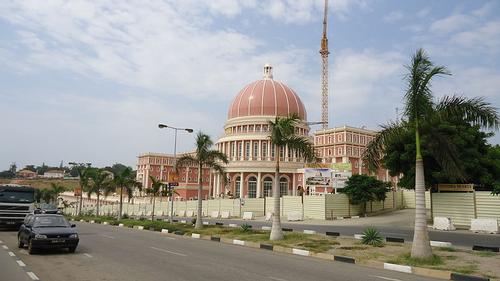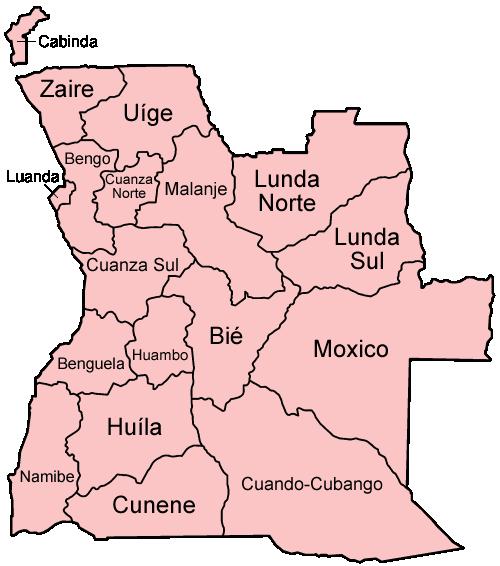ANGOLA
Society

Society
Society
State structure
 Angola Assembleia NacionalPhoto: Fabio Vanin CC 3.0 Unported no changes made
Angola Assembleia NacionalPhoto: Fabio Vanin CC 3.0 Unported no changes made
The Republic of Angola (Portuguese: Republica de Angola, until August 1992 People's Republic of Angola) is a constitutional (presidential) republic. The Angolan constitution dates from 11 November 1975 and provides for a multi-party system after the last revision in August 1992. The legal system is based on Portuguese and customary law. The independence of the judiciary is enshrined in the constitution.
Since the adoption of a new constitution in 2010, Angola has effectively become a presidential republic, with the president being both the head of state and government, with near-absolute power. He is commander in chief of the armed forces, appoints (and fires) numerous government officials, including the vice president, the other members of the cabinet and the judges of the Supreme Court. He also calls new elections.
Executive power is exercised by the government. Legislative power is vested in the president, government and parliament. All this means that since 2010 the position of (designated) Prime Minister no longer exists.
The National Assembly or Assembly (Portuguese: Assembleia Nacional), has 223 members: 130 members according to the proportional representation system, 90 members in provincial districts, and 3 members representing Angolans abroad. Elections to the National Assembly are held every five years, and the president is automatically the leader of the winning party or coalition
Adminstrative division

Photo: Golbez CC 3.0 Unported no changes made
Administratively, Angola is divided into 18 provinces, headed by a governor, assisted by a vice-governor. Both officers are appointed by the president
Overview 18 Angolan provinces with capitals.
| Province | Capital |
| Bengo | Caxito |
| Benguela | Benguela |
| Bié | Kuito |
| Cabinda | Cabinda |
| Cuando Cubango | Menongue |
| Cunene | Ondjiva |
| Huambo | Huambo |
| Huíla | Lubango |
| Kwanza Norte | N'dalatando |
| Kwanza Sul | Sumbe |
| Luanda | Luanda |
| Lunda Norte | Lucapa |
| Lunda Sul | Saurimo |
| Malanje | Malanje |
| Moxico | Luena |
| Namibe | Namibe |
| Uíge | Uíge |
| Zaïre | M'Banza Congo |
The provinces are subdivided into 164 municipalities and many hundreds of communities.
Sources
BBC - Country Profiles
CIA - World Factbook
Elmar Landeninformatie
Oyebade, Adebayo / Culture and customs of Angola
Greenwood Press
Stead, Mike / Angola
Lonely Planet
Copyright: Team The World of Info